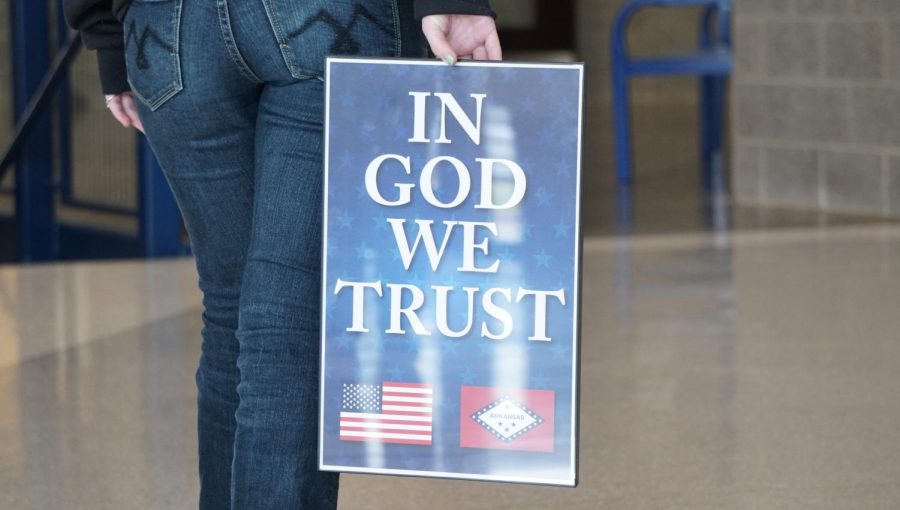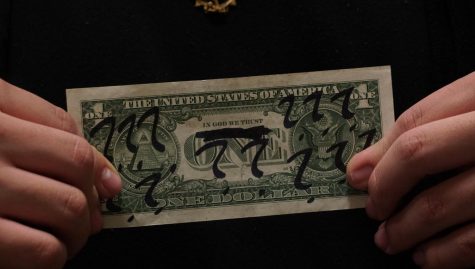More Than a Motto
The In God we Trust posters recently hung on school walls, has caused controversy among students and teachers.
January 21, 2022
The state of Arkansas implemented a law requiring that if framed posters are donated they are mandatory in classrooms in 2017. These posters consist of the American and Arkansas flags on the lower half and bold letters on the upper half, spelling the phrase “In God we Trust.”
Recently enforced throughout Bryant School District, students and teachers have different opinions on this new addition to the classroom. Mike Morrow has spent 31 years as a math teacher, and believes that the poster provided in his classroom is a privilege he is grateful for.
“I feel proud that we have the freedom to do that,” Morrow said. “[There] are lots of countries where you are not allowed to do something like that. We’ve also got the laws in this country that are starting to lean further and further left [trying] to make this kind of stuff illegal. [In] some towns and states this is illegal. I appreciate them doing this. It takes a lot of leadership too.”
In Morrow’s classroom, the atmosphere in class has remained the same after the poster was put up.
“No one acts any differently [with the addition of the poster],” Morrow said. “Before they put that up the kids acted the same as they are now, and nobody has appeared offended.”
The constitution states that public schools may not openly discuss matters of religion or religious perspectives at all. Morrow believes there to be no underlying message by implementing these posters, but agrees with the religious values during the birth of the country as well as its laws.
“This country was* founded on Judaic Christian values and it doesn’t force you to honor that particular religion,” Morrow said. “The values from the Judaic Christians are what we live by and that’s what our laws originate from.”
Aydin Price, senior of Bryant High School, disagrees with the purpose and effect of these signs, he believes they are ‘exclusive and unnecessary’.
“I feel like it’s kind of pushing an agenda onto everyone in the room regardless of what they feel towards it,” Aydin said. “This is a public space where people of lots of backgrounds and beliefs co-mingle together and I feel like that message being mandatory is kind of placing Christianity on a pedestal implying that this religion is superior.”
“Even in other parts of the world, even though it has kind of faded recently, it’s still a very prominent controlling force in many countries,” Aydin said. “I just feel like religi on shouldn’t have the power it does on people. 9 times out of 10 it’s used as a control mechanism more than it is for the greater good.”
Aydin describes these posters as a threat to the freedom and control teachers have over their classrooms.
“It’s a very subtle thing, in the back of your mind you see it and you know it’s there,” Aydin said. I believe the teachers should have as much control over their classroom as possible and it should be a welcoming safe space over anything else, for all students.”








